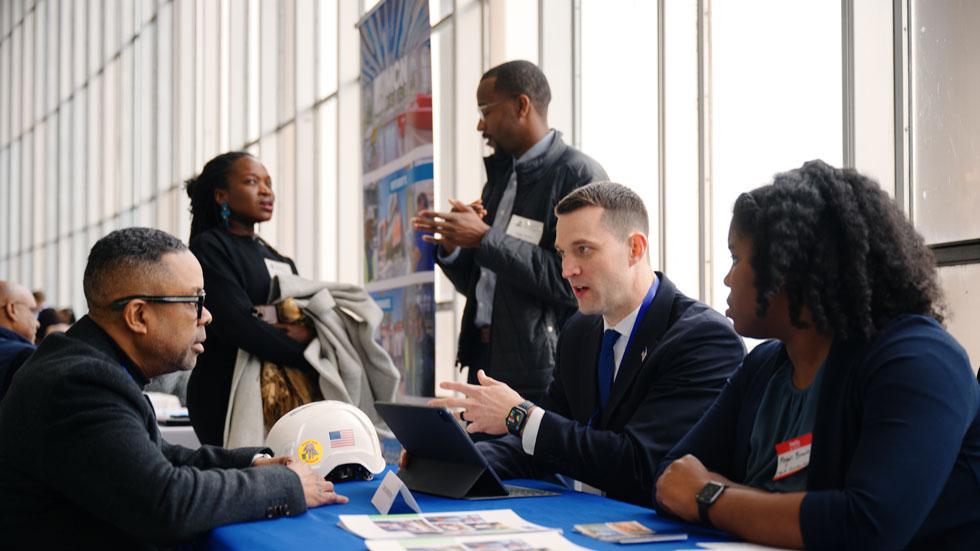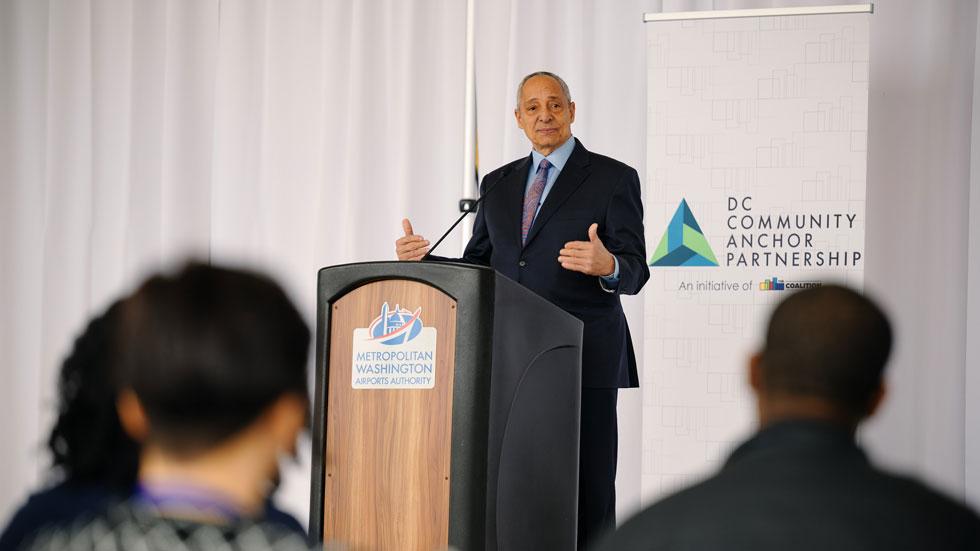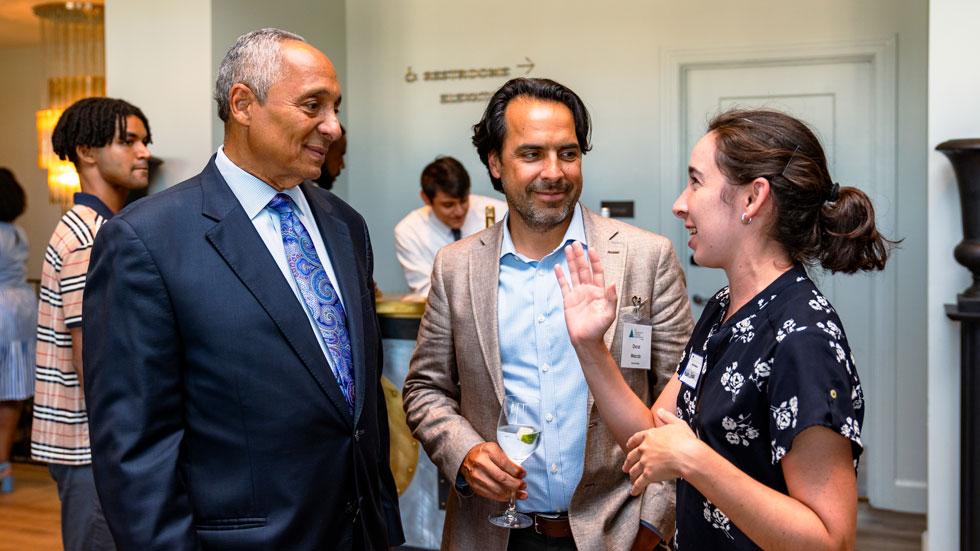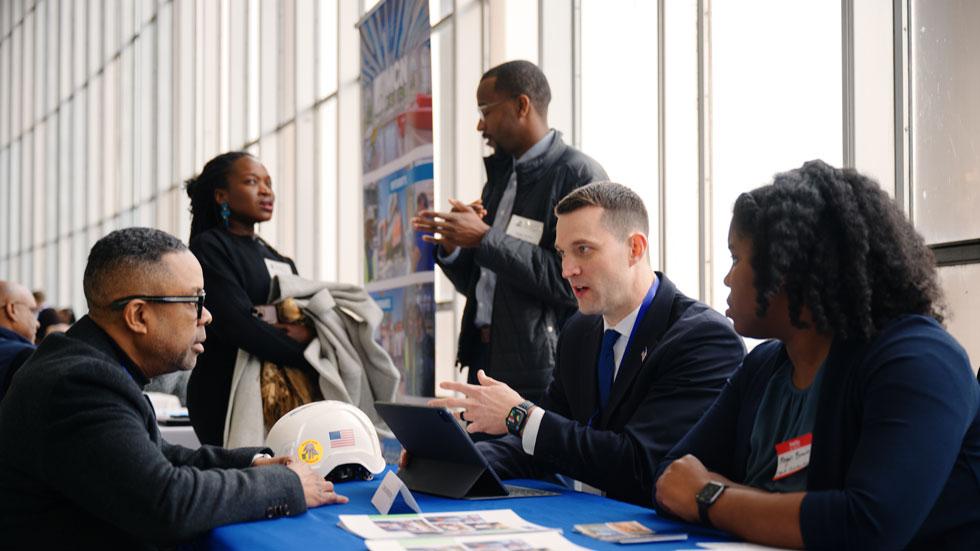
This is the first in a series of profile pieces about the Nareit Foundation’s DTD 2025 grantees and grant program. The grant program falls under the Foundation’s DTD initiative, which focuses on increasing the visibility, awareness, and appeal of the REIT industry to more businesses, workforce talent, and communities. There are three priority areas: supporting pipeline/talent development, expanding procurement and business development, and helping everyday investors understand REITs and how to invest in them.
In 2025, The Nareit Foundation awarded grants to nine nonprofit organizations. This first piece profiles The Coalition, and how its work supports: procurement and business development.
For more than 25 years, The Coalition (formerly known as the Coalition for Nonprofit Housing and Economic Development) has been instrumental in advancing economic mobility in the District of Columbia through its work in affordable housing and inclusive economic development. Since its inception in 2017, The Coalition’s DC Community Anchor Partnership (DCAP) has facilitated more than $250 million in contracts for local small businesses through collaborations with participating large companies.
“The Nareit Foundation’s grant will help us continue to move the needle in these areas,” says Stephen Glaude, The Coalition’s president and CEO, who has led the organization since 2014.
The Coalition specifically supports small and local businesses by helping them navigate the procurement process and acquire sizable contracts with large companies, or “anchor institutions,” as The Coalition refers to them. Those institutions include universities, hospitals, utility companies, corporations, and large real estate companies.
One of the most overlooked resources in cities across America is the spending power of its large institutions and companies, Glaude points out.
“When we focus on the challenge of growing and scaling our small businesses, the fact that large institutions hire local residents and are business owners themselves, it’s clear that spending power is really catalytic for community growth,” he says. “The hardest challenge in supporting small businesses is helping them grow. Giving them access to the spending power of large companies is a sustainable pursuit worthy of our collective efforts,” he says.
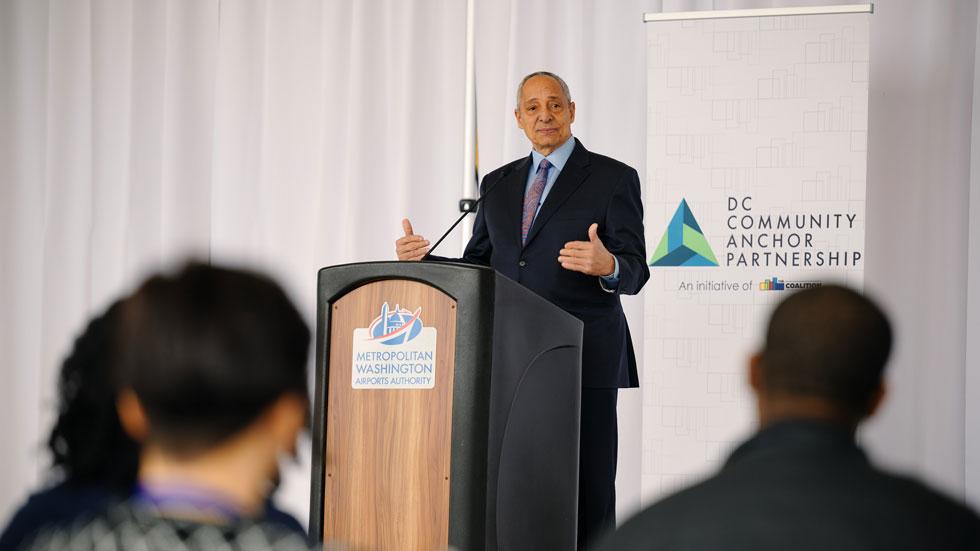
“For small businesses, another challenge is ensuring that they consistently have access to high value contracting opportunities and the technical capacity to scale,” says Nareit SVP of Social Responsibility and Global Initiatives Ayris T. Scales, who also has a background in supporting small and local businesses.
“At the same time, we’ve heard from REITs that identifying, vetting, and sourcing small and local businesses can be a challenge, so having access to a suite of tools and best practices for supply chain expansion, is valued” Scales adds.
The work that The Nareit Foundation is doing with The Coalition addresses both sets of challenges: the grant enables The Coalition to continue its work in helping small businesses expand and access the large companies that can help them grow, and REITs, through The Coalition, are able to identify and expand their access to vetted qualified suppliers who have received a range of technical assistance.
But opportunity alone isn’t enough. Many businesses—particularly those without legacy networks or institutional capital—face barriers when trying to scale. That’s why The Coalition takes a two-pronged approach: strengthening the capacity of small business owners while also educating large-scale institutions “anchors” on how to identify and engage high-quality, highly skilled, competitive vendors with a range of qualifications.
Win-Win
As part of their two-prong approach, The Coalition identifies, vets, refers, equips, and assists businesses in their processes.
“We've gotten really good at understanding the needs of large institutions, and now large development projects and their owners,” Glaude says. “We can assure Nareit’s membership that they will get high-quality referrals. We can also help Nareit’s membership identify the needs that they have for the completion of their projects and align them with local businesses that are equipped and skilled to assist in their primary goals of getting these projects done at a high quality and in a timely fashion.”
Glaude says the grant from Nareit is “huge because it will allow us to provide Nareit’s membership with the suite of services that we offer to our large institutions in helping them pursue and achieve this work.”
Small firms are extremely capable, Glaude explains, and The Coalition wants to help match them with business opportunities to help them excel and grow their businesses. When small businesses succeed, they succeed because they hire people from the community.

“No matter how big or small the undertaking may be, there’s a role for small and mid-sized businesses, and local companies, and they will be able to demonstrate that they can not only meet the needs but meet the needs in a way that doesn't suffer cost or quality,” Glaude says. “I think that will be a paradigm shift for how development has historically been viewed.”
Glaude says the goal is to build a system of belief and a culture of inclusion. That involves demonstrating that large development projects and real estate companies can partner with small to mid-sized firms in a way that helps them accomplish their primary goals of getting deals done and projects built, while also expanding their contributions beyond that primary goal.
The Coalition In Action
The Coalition already partners with range of major players in the real estate industry. For example, Clark Construction Group, one of the largest construction companies in the US, was awarded a contract for the massive Capital One Arena upgrade in DC and signed on as a community anchor partner with The Coalition.
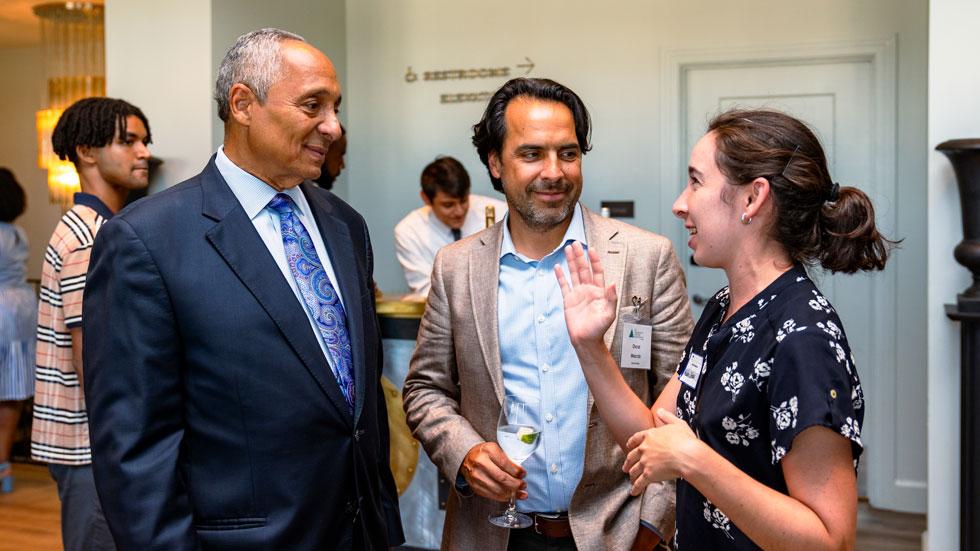
The owners of Capital One Arena formed a public-private partnership with the District of Columbia to renovate the venue that’s home to its NBA and NHL teams. Clark has committed to hiring and contracting locally to ensure that the construction of the project provides meaningful employment opportunities for the residents of D.C.
“We've now begun the foray into dealing with large real estate companies as part of our anchor strategy, and to have Nareit come in as a partner, to potentially work with their members and their projects, is so timely, and it's aligned with the future direction of where we need to go,” Glaude says.
Pursuing Highest Standards
It’s no secret that nonprofits face challenges with financial stability. Despite market volatility and economic uncertainty, Glaude and The Coalition remain inspired and driven.
“We stay motivated with the simple but powerful understanding that the people we're trying to help and the conditions we're trying to adjust cannot afford us to be marginal,” he says.
“We have to be somewhere between creative and disruptive in our use of resources, because so often, we’re supported at a level that does result in marginality,” Glaude continues. “We, as the holders of the work and the utilizers of the resources, must set very high standards. It's the pursuit of those standards that keeps us motivated.”
Getting Involved with The Coalition
REITs that want to know about how they can partner with The Coalition to increase their capacity and expand their supply chain network should contact Ayris T. Scales at ascales@nareit.com.
